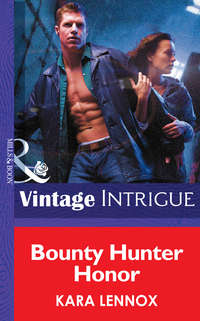
Полная версия
A Score to Settle
Daniel pulled out a chair for Jamie, then took his own. He did love this room. Already, he could feel some of the tension leaving his body. He shrugged, testing his back, but the muscle spasm appeared to be gone for good.
Sometimes he took for granted what his wealth could create.
Jillian took Tucker and departed, leaving Daniel and Jamie alone.
Daniel lifted the lid on his plate and inhaled. His mouth watered. “I’ll have to find out the name of this dish so I can request it again.”
“It does smell good,” Jamie said cautiously as she examined her own plate. It was a small portion of chicken with a light dousing of creamy sauce, along with a generous helping of fresh asparagus and some rosemary new potatoes.
Daniel cut a piece off the chicken, but his attention was focused more closely on Jamie than his meat. He wanted her to enjoy the food.
She took a bite, chewed thoughtfully, swallowed. “Your fifteen minutes are running.”
“Right.” Damn, he’d almost forgotten the reason she was here. Who cared if she liked Claude’s cooking? It was more important that she like his facts.
“Are you familiar with the Andreas Musto murder case?”
“The one for which you stood trial. I’m somewhat well versed,” she said cautiously. Which probably meant that what she knew, she’d absorbed from the media. It had been one of those crimes that reporters loved to sensationalize—a billionaire’s son accused of a gruesome slaying.
“I’ll quickly refresh your memory. Andreas Musto was my business partner. We owned a restaurant together. He was found at the restaurant with his throat cut, the murder weapon—a wickedly sharp butcher knife—lying nearby. The knife had my fingerprints on it. I did not have an alibi. Does this sound at all familiar?”
Jamie, who had been devouring her rosemary potatoes during his speech, made a show of chewing, swallowing, taking a sip of iced tea and delicately blotting her mouth with her napkin.
“I’ll admit, the circumstances are similar to those of the Frank Sissom murder. But lots of crimes sound alike. There are only so many ways to kill people—shooting, stabbing, poisoning, strangling, drowning or blunt-force trauma.”
“But how many killers—seemingly intelligent young men like myself and Christopher Gables—leave behind the murder weapon with their prints on it?”
“Criminals often act without logic. In the heat of the moment, a person can lose their ability to reason. Take the bank robber who wrote the demand note on his own deposit slip. Or the man who, hours after a murder, goes on a spending spree with the victim’s credit cards.”
“And just how many murder victims have their throats slashed with a butcher knife? In a restaurant?”
“Murders often take place in restaurants. They’re open late at night, they deal in cash—”
“Robbery wasn’t the motive in either case.”
“The crimes took place many years apart,” Jamie said sensibly. “The locations were twenty, maybe thirty miles from each other. I’m sorry, but the facts do not scream ‘serial killer’ to me.”
He was losing her. He could see it in her eyes.
“So this is why Project Justice took on Christopher Gables as a client?” she asked. “The crime reminded you of the one that landed you in prison?”
“Partly.” He’d rather not tell Jamie about Theresa Chavez until he interviewed the woman himself. But he had to do something to make an impression.
“The similarities in the crimes are one reason I took the case,” he admitted. His decision had shocked his staff; he’d never personally led an investigation before. “It was easy for me to put myself in Christopher’s place. But what really swayed me was the witness.”
“Witness? There was no witness.”
“Ah, but there was. A young woman who bussed tables at the restaurant, El Toreador. She called the police, babbling incoherently in Spanish, then fled the scene before she could be interviewed.”
Jamie leaned back in her chair. “Theresa Chavez. She was the one we think found the body,” Jamie said. “That’s not the same as a witness to the murder.”
“So you know about her.” Damn, he’d been hoping to take Jamie by surprise.
“She was considered briefly as a suspect, but dismissed because she was hardly more than a teenager and weighed a hundred pounds soaking wet. Frank Sissom was six foot and two-twenty. No way she could have overpowered him.”
“But she was never questioned.”
“Unfortunately, Theresa was an illegal alien. Apparently she was scared of being deported, so she went into hiding. We never found her.”
“How hard did you look?”
“The police made a concerted effort to locate her.” Jamie didn’t conceal her defensiveness very well. “But a person with no credit cards, no social security number or driver’s license—she disappeared. Completely.”
“But not forever. Theresa has recently come forward. Her conscience was bothering her. She says she spotted a stranger in the restaurant kitchen only minutes before Frank was killed. It certainly wasn’t Christopher Gables, whom she knew quite well.”
His news did not have the desired effect. Jamie did not look shocked or even surprised. She raised one skeptical eyebrow. “After what, six years? Her conscience is bothering her?”
He supposed he couldn’t blame Jamie for her skepticism. Her job put her in daily contact with criminals of the worst order, most of whom would do or say anything to get them off the hook.
“It’s more like a change of circumstances,” Daniel said, noting with some satisfaction that Jamie was well on the way to cleaning her plate. “Her conscience has always bothered her. But she recently got a green card. She doesn’t have to fear deportation. Her English has also improved a great deal in the last seven years.”
“Well. If she has something to say, I’d like to hear it.” Jamie’s tone indicated she didn’t want to hear it at all, but didn’t want to be considered unreasonable. “Have her contact my office. I will at least listen to what she has to say.”
“Will you really?”
“If I say I will, then I will. But keep in mind, eyewitness testimony isn’t the gold standard it once was. So many things can taint a person’s memories—the passage of time, the influence of the media or others’ recollections, even a fervent wish to have seen something different. And, of course, the promise of a load of cash can improve a person’s memory in sudden and dramatic ways.”
This was the height of rudeness. “You think I would pay someone to— You’re actually accusing me of—”
“I am not accusing anyone,” she said hastily. “Just stating a few well-known facts about witness testimony in general. I’m willing to hear the woman’s statement. But I will accept hard, physical evidence over witness testimony any day.”
“Are you saying an eyewitness to the crime wouldn’t convince you to reopen a case?”
“I won’t know until I actually talk to this Theresa. I mean, how will I know she’s even the same person, since she had no documentation back then?”
“We’ll cross that bridge, trust me.”
“That’s just the problem. I don’t trust you. I don’t trust anyone with an ax to grind.”
At least he and Jamie had that in common. Daniel didn’t trust anyone, either, at least not beyond his senior staff at Project Justice and in his own home. He wouldn’t begrudge Jamie that mistrust. “All I ask is that you give the woman a chance to speak.”
“If she’ll call my office and make an appointment, I’ll meet with her.” Jamie popped the last bit of asparagus into her mouth, chewing with a satisfied expression.
This was the best Daniel could expect. Having reached the terms he’d hoped for, it was time to end this meeting. He had learned long ago that once someone agreed with him, the best course of action was to get the hell away from them before he said or did something to change their mind.
But he was loath to send Jamie away. When was the last time he had shared a meal with a beautiful woman? He often grabbed a bite to eat with Jillian when they were on a tight schedule and she was helping him with some project or another, but that was different. She was practically a little sister. He’d known her forever and didn’t think of her in sexual terms.
It was hard to look at Jamie and not think of sex. She had a strangely strong effect on him.
One of the worst things about being in prison had been the lack of female companionship of any kind, and he’d always imagined that the first thing he would do if he regained his freedom was find a beautiful, willing woman and have sex for days on end.
It hadn’t happened like that, of course. Once he got out, he’d had to rebuild himself, physically and mentally, before he could even think about bringing another person into the mix. Then he’d had to deal with the deaths of his parents, one right after the other, all while building his fledgling foundation and handling crisis after crisis at Logan Oil & Gas.
Jamie was the first flesh-and-blood woman to arouse him in a very long time.
“I hope you left room for dessert,” he found himself saying against his better judgment.
Jamie seemed to rouse herself from the pleasure induced by a superior meal. “Oh, no, I don’t have time for that.”
Daniel reached for the hardwired phone that was nestled in a stone niche near their table. “Cora, we’re ready for dessert,” he told Claude’s assistant when she answered. “What’s on the menu today?”
“Tiramisu,” Cora said. “I’ll get a couple of slices right down to you.”
“Tiramisu,” he repeated for Jamie’s benefit.
“I really have to go.”
“Another few minutes won’t—”
“No, I really have to go.” She was much firmer this time as she scooted her chair out and found her feet.
Daniel was tempted to try to cajole her into staying for dessert. But he risked making her angry, and she’d only just recently lost that tense, mulish expression and begun to speak to him as an intelligent human being, rather than a bug on the sidewalk she’d like to squish.
“I’ll show you out, then,” he said amicably. He picked up the phone again and pushed the Jillian button—every phone in the house had a Jillian button. After speaking briefly to his assistant, he showed Jamie back through his office where she grabbed her all-but-forgotten briefcase. They continued up the stairs and down the long hall that led to the front door.
“Who are all these people?” Jamie asked, nodding toward the portraits that lined the walls. “Logan ancestors?”
“Good heavens, no. Most of my ancestors were Scottish peasants, not the kind who were immortalized by great artists. My grandfather bought most of these paintings as investments.”
“Your grandfather was a self-made man?”
“If you call discovering oil on your little piece of hardscrabble farm made and not lucky.”
“I imagine it takes a bit more than luck to build an empire the size of this one.”
“Some hard work,” Daniel agreed. “My father was never home for dinner. Worked himself to an early grave.”
“I take it that’s not your philosophy.”
“Make no mistake, Jamie, I work hard. But I also take care of myself, and I insist my employees do, too. What’s the point of working yourself to a frazzle—even for something you care deeply about—if you’re not around to appreciate the fruits of your labor?”
“I guess people do it so their children will have the kind of life they didn’t,” Jamie said, rather philosophically.
“Is that what your father did?”
“Oh, no. My father wanted me to live exactly the same life he did.” An edge in her voice suggested disapproval.
“He was a lawyer, too, I take it. A prosecutor?” His research had told him Jamie was born out of wedlock and the father was out of the picture.
She didn’t answer, and Daniel thought better of pursuing the subject. They’d arrived in the foyer, and Jillian was there, clipboard in hand as well as a small, white cardboard box, which she handed to Jamie with a brittle smile.
“What’s this?”
“Tiramisu. Something to nosh on if you get stuck in traffic again. Daniel didn’t want you to miss it. Although our chef, Claude, is French, not Italian, he does an incredible job.”
“Thank you,” Jamie said uncertainly.
“No, thank you,” Daniel said, meaning it. “I know it was an imposition, driving out to River Oaks, but I appreciate you taking the time to meet with me. I believe in the end you’ll be glad you did.”
She turned to face him, and that mulish expression had returned to her face. “Mr. Logan. Best-case scenario for me is that you’ve wasted some of my time. Worst case, you make me look like an incompetent fool and possibly cost me my job.”
“I hope it won’t come to that.”
“If you’re right, that is exactly what would happen. Believe it or not, I would be willing to accept unemployment if you could prove I’d made such a heinous mistake. But I’m not willing to be made a fool simply because you have the money, and the clout, and the patience to get your way. I will not give in simply to be done with this. I will fight you every step of the way, no matter how good your freaking tiramisu is.”
On that note, Jillian opened the front door for her, and Jamie stepped out into the blustery fall day toward her car.
Jillian closed the front door with a bit more force than necessary. “She’s a real piece of work.”
“I thought she was fantastic! Intelligent, outspoken, passionate about her work…”
“And drop-dead gorgeous,” Jillian observed drily. “I don’t suppose you’re crushing on her, are you?”
“Jillian, please. I’m well out of adolescence. I don’t get crushes.”
“Whatever you call it, I hope you won’t let it get in the way of what you have to do. Because to free Christopher Gables, you might very well have to crush one passionate, overzealous prosecutor.”
WHAT JUST HAPPENED BACK THERE?
Jamie’s hands actually trembled as she put the car in gear and headed toward the gates that were, even now, opening for her. She’d walked into Daniel Logan’s home practically breathing fire, ready to dazzle him with her facts and her smart-ass wit. Instead, she’d found herself ogling a half-naked man, sharing one of the best meals she could remember while the same man wore nothing but a bathrobe, and saying yes to something she never should have agreed to.
Now she was committed to giving Theresa Chavez an audience. And if the woman convincingly claimed to have witnessed someone other than Christopher Gables killing Frank Sissom, Jamie could not, in good conscience, dismiss the woman’s statement.
She would have to investigate. She would have to find out if it really was the same woman who discovered the body, then fled, and then determine if the woman was credible.
None of which would change the fact that Christopher Gables’s fingerprints, and only his prints, were found on the murder weapon. But if she didn’t perform due diligence, Daniel Logan would never leave her alone.
She knew how Project Justice operated, because quite a few cases prosecuted by her office had been overturned due to the persistence of the foundation’s people. Daniel—who believed in this case so strongly that he had taken it on personally—would not give up until he was convinced beyond any reasonable doubt that his client really was guilty.
God, what a nightmare. Winston Chubb, the district attorney, wasn’t going to be happy with this turn of events. And he would find a way to blame Jamie for it, she was sure. Winston always managed to grab the credit for anything good that happened, and passed the buck regarding anything bad.
On top of everything else, she could smell the tiramisu, faint threads of chocolate, vanilla and coffee. She ought to just throw the little white box—tied with a satin ribbon, for God’s sake—into the first trash can she saw. The dessert was a symbol of everything that had gone wrong with that meeting, including her completely inappropriate physical reaction to the billionaire.
Imagine her, Jamie McNair, attracted to a convicted killer! But she was.
It was hard to visualize Daniel Logan killing anyone. Even knowing the facts, she hadn’t felt the least bit uncomfortable alone in his presence, other than having to hammer down her libido.
But then, people had said that about Ted Bundy.
THIRTY MINUTES LATER, Jamie was back into her office and the little white box was empty, damn it.
Her day was shot. A pile of cases sat on her desk—mostly routine plea-bargain requests from defense attorneys. She went through as many as she could, signing off on the reasonable ones, rejecting the more outrageous requests for repeat felons and violent offenders.
She spent an hour returning phone calls, talked to three different detectives regarding a felony assault case, then checked her schedule for the following day.
Jury selection for a drunk hit-and-run case in the morning; three appointments in the afternoon.
With fifteen minutes left of her official workday, Jamie did what she’d known she would do all along. She opened the Gables/Sissom murder file and dug through a mountain of reports until she found the one from the crime lab regarding the evidence they’d processed—bloodstains, fingerprints, the knife and, finally, the victim’s clothing.
Most of the details regarding the clothing had to do with bloodstains—including one tiny biological stain on the apron that hadn’t belonged to the victim and had remained unidentified. But there was also a list of substances other than blood found on the victim’s shirt, which included olive oil, tomato juice, salt—all the things once might expect to find on someone who spent time in a restaurant kitchen.
One finding, though, made Jamie stop: “a black, powdery substance assumed to be from a laser printer or copy machine.”
Assumed to be? Since when did crime-scene analysts assume anything? Probably the restaurant had a printer or copy machine, and since Frank Sissom was one of the owners, she had every reason to believe he’d been in the office and changed a printer cartridge.
But a black, powdery substance could also be metal shavings. Damn it.
She called the guy who’d signed the report, Eddie Goddard. He’d been working at the crime lab since Jamie was in high school, and though he was normally thorough and dependable, he still was not her favorite person. A card-carrying member of the Good Ol’ Boys Club, he didn’t like women telling him what to do.
“Eddie. I see you’re working late like me.” It was now well after five.
“I was just heading out, actually. What can I do for you?” He did not sound enthusiastic about adding any tasks to his To Do list.
“I won’t stop you from getting home in time for dinner,” she promised, hoping to earn brownie points. “But tomorrow morning, I’m going to bring you a piece of clothing from the Frank Sissom case. I need some additional analysis on a certain stain.”
“You’re joking, right? That case is ancient.”
“Wish I was. But I need to shut somebody up before he goes to the press and makes our lives more miserable than they already are. A quick look-see under a microscope will probably do the trick.” She hoped.
“Okay, sure,” he agreed in monotone.
Tomorrow morning, she would retrieve the actual physical evidence from the police, hand the victim’s shirt over to Eddie and pray that Theresa Chavez didn’t call.
CHAPTER THREE
“DANIEL, SORRY TO disturb you, but Jamie McNair is on line two.”
The four men and two women seated in Daniel’s conference room looked surprised by the interruption, and it was no wonder; his staff knew not to disturb him during a Logan Oil & Gas board meeting. The company was largely responsible for maintaining Daniel’s personal wealth, and Daniel remained involved in the overall direction and philosophy of the company his grandfather had started.
The meeting was important, but Jamie took priority.
“I have to take this call,” Daniel said to the board as he rose. “Shouldn’t last more than five minutes.”
When Jamie had left his home two days ago, Daniel hadn’t been sure how, or even if, she would follow up. So he was a bit surprised and pleased that she’d called him.
He stepped down the hall and into his private office, then picked up the phone.
“Jamie. Good to hear from you.”
“Mr. Logan.”
Damn, she didn’t sound nearly as warm as he’d hoped. “Did Theresa get in touch with you?” He already knew she had; he’d personally seen to it. He’d even hired a car and driver to take her to the district attorney’s office for an interview.
“She did. And I’ll be honest with you, she piqued my interest.”
“Then you’ll reopen the case,” he said confidently.
“Don’t get your hopes up. She seemed genuine, but I still haven’t verified she was at the scene of the crime. For all I know, she’s an actress you hired.”
Daniel bit his tongue to stifle a snide retort. After spending six years hitting brick wall after brick wall trying to overturn his own conviction, he shouldn’t be a bit surprised by Jamie’s attitude.
“I can provide the documentation you need—”
“I’ll provide my own, thanks very much. And if I find out she’s lying, I’ll personally see to it she’s prosecuted. And if I find you paid her to lie, I’ll prosecute you.”
Daniel was livid. He was so tired of this attitude. Of course, the Harris County D.A.’s office would be doubly motivated to prevent another overturned conviction; Project Justice had recently gained freedom for a mobster’s son convicted of killing his girlfriend, and the case had caused some major embarrassment for the D.A.
“It sounds as if you simply don’t like me very much. Are you going to let personal feelings stand in the way of justice?”
“Please stop being so simplistic. I’m convinced I did a good job convicting Christopher Gables. Naturally, it’s going to take a solid argument to persuade me I made a mistake.”
“We’re talking about a man’s life here.”
“Yes, the life of Frank Sissom, Gables’s victim. Do you have anything else to show me? If so, bring it on.”
“What about that unidentified DNA?”
“If you have a theory about where it came from—or any other evidence—I’m willing to talk. Contrary to what you might believe, I do not have a closed mind. In fact, I’m having one of our evidence analysts reexamine Frank Sissom’s apron.”
“Really?” She’d succeeded in surprising him.
“I should have results tomorrow.”
“Then by all means, we should talk again. When can you get here? I can free up my schedule anytime—”
“I’m glad to hear that, because mine is packed. I can spare you an hour tomorrow afternoon or Monday morning, here at my office.”
Daniel’s heart clutched, and he forced himself to breathe deeply. “I can’t possibly drive downtown.”
“Afraid you’d miss your afternoon massage? Exactly how serious are you about wanting to free your client? I disrupted my whole schedule to drive to River Oaks. If you want my cooperation, you can meet me halfway. Besides, we might need to talk to people in the crime lab or the investigating officers involved in the case—all of whom can be found downtown.”
“I can send one of my best people.” And admit to his staff—already skeptical—that he was not up to handling a case on his own. That would be a bitter pill to swallow.
“Okay. Your assistant can meet with my assistant.”
Now she was playing hardball. “Ms. McNair. Jamie. This matter is too serious for us to play games.”
“Don’t talk to me about games. You’re the one who made me cool my heels while you got your massage and sent me home with tiramisu, trying to butter me up.”
Maybe she had a point. “Did you like it, by the way? Chef Claude is a genius.”
“That is immaterial. I’ve got a lot on my plate and I really don’t have time to chase after every hard-luck and if-only story I hear. You believe he’s innocent? Fair enough. Show me the commitment that says you mean it. I’m willing to listen, but I’m not going to deal with layer upon layer of assistants and bodyguards. You started this, and I think you should be the one to finish it. Personally.”








